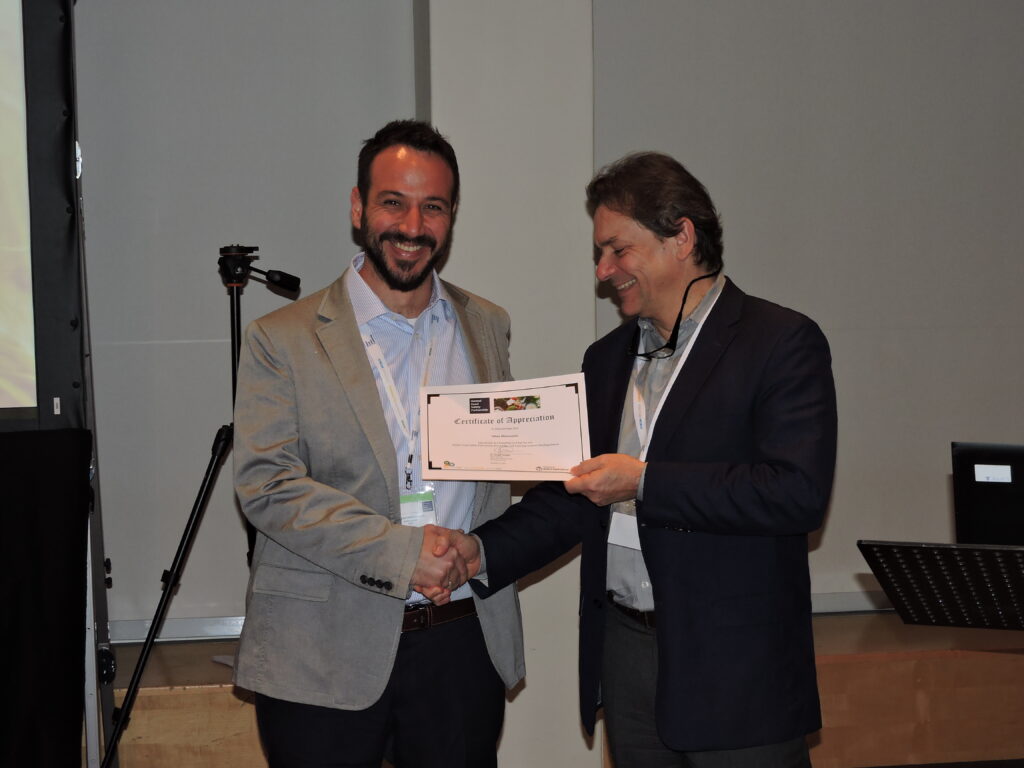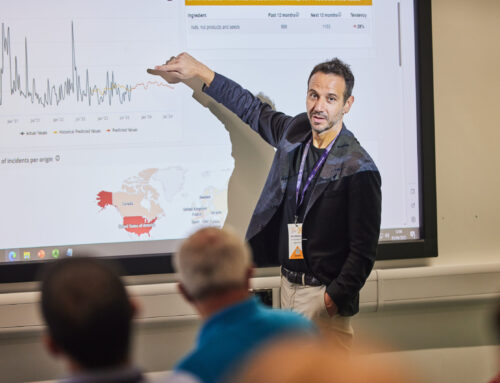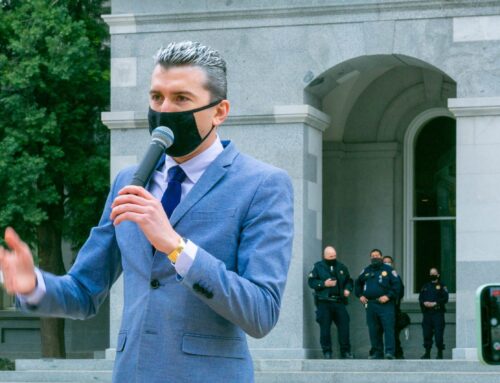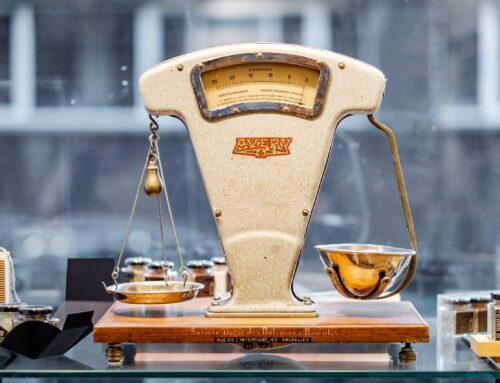
While writing this, I am on the plane for home and trying to adjust from the summer weather of Cape Town to the chilly weather of Athens. But most of all, I am trying to digest a wealth of ideas, images and impressions that I bring back with me from the annual conference of the Global Food Safety Partnership. I have to admit that I was not prepared for this. I was expecting a quite slow and boring conference, with some meetings of interest but with an emphasis on the process (how this huge partnership will function) rather than the substance (how impact will be achieved). I was also expecting discussions to be around food safety technical topics rather that technology and data challenges. And as it often happens, I was wrong.
The GFSP is a public-private partnership that tries to put together a multimillion trust fund with the facilitation of the World Bank, in order to scale up food safety capacity building and ensure that good and safe practices can reach everyone that is producing, processing and selling food around the world. It brings together a unique mix of academic, governmental, international and private sector stakeholderd that are leaders in the food safety scientific research and business space, and who have a common stake and goal in this. The Leadership Group (in which I have the honour and pleasure to participate as a representative of the technology guys – see below) has more than a dozen of high level and extremely intelligent senior representatives from members such as Nestle, Mars Inc., Waters Corp., the Grocery Manufacturers Association (GMA), Food Industry Asia, the United States Agency for International Development (USAID), the United States Food and Drug Administration (FDA), Health Canada, the World Health Organization (WHO), the World Organisation for Animal Health (IOE), the Food and Agriculture Organization of the United Nations (FAO), the United Nations Industrial Development Organization (UNIDO), and the World Bank Group. My experience so far from this group is that there is a common and crystal clear vision, together with the necessary commitment, perseverance and passion in order to find ways to improve global good safety – together with the energy that all GFSP members devote to make this happen.
Agro-Know, apart from joining the Leadership Group of GFSP, has also been one of the first members that contributed significantly to the Knowledge and Learning Systems Working Group (KLSWG). I was very luck to be invited to join Chris Geith (Michigan State University) and Paul Stacey (Creative Commons) in co-chairing with them this WG in 2014; now KLSWG is ready for its 2nd year of work with a new set of co-chairs and a continuous spirit of enthusiasm.
Our main achievements during the past year have been:
a) The development of a concept note on the open models that could be considered within the GFSP network, in order to reap the benefits of opening up access to information and developing new business models based on openness. This work was led by Paul Stacey and the concept note was co-authored by Paul, Theresa Bernando and Garin Fons.
b) The elaboration of an initial set of recommendations for the technology platform that could support information exchange and discovery within such a global network, following an open and distributed architecture that can achieve scale. These have been outlined in a slidedeck that the KLSWG has discussed and refined.
c) The development of a demonstrator of how food safety information of various types and from various sources can be indexed in a GFSP registry and made discoverable through various information discovery channels/points. Agro-Know’s AgLR tool has been used for indexing and curating metadata on various resources. Several GFSP databases and collections have been sampled or harvested. An online search service (called the GFSP Discovery Demonstrator) based on the Agro-Know Data Framework has been deployed.
d) The organisation of a series of interviews with experts from the GFSP network (including representatives of GMA, NEHA, JIFSAN, NCFPD, MSU, OIE, and more). The aim was to understand the needs, perceptions, requirements and expectations that GFSP stakeholders have from a food safety information sharing platform.
Together with Bill Krueger and Eric Hoffman from Global CCCET, the KLSWG delegation in Cape Town explained and demonstrated scenarios of use for this envisaged information sharing platform, and discussed with GFSP members what they would expect to see there. After several sessions and parallel discussions, we decided to propose focusing the work of the KLSWG for the next year on the following:
– The support of other GFSP WGs in desktop survey and mapping exercises that they carry out, in order to find out who else in the network (or in their contacts) does something related or similar to what they plan to do. For instance, Janie Dubois from JIFSAN (almost famous by now for her car) is working within the Lab Capacity WG on designing a quite elaborate lab training programme for specific countries of interest. She and the other colleagues in this WG are searching around about who else (donor or lab training provider) is doing something already in the targeted regions and topics, in order to avoid duplication of work. A very large spreadsheet is being produced with capacity building projects and programmes, produced materials, responsible people. Which is of course not easily accessible by other people that are looking for something similar, or might be overlooking some work that e.g. USAID or DFID has funded in a region. And any outcomes of these interventions (training materials, trained local experts, evaluations of training etc) are not directly linked and made accessible to anyone looking for this information. We decided to call this the Mapping Support Pilot and link it with similar work that we will do with initiatives funded by the European Commission. We would like to combine it with information already made open by donors like DFID and the Gates Foundation.
– An information discovery service that will focus on a case that will be of primary importance and interest for the GFSP. The case of foodborne disease information was pointed out as a very important one from our colleagues from WHO and IOE. This fit very nicely our interest to work with agencies like the Center for Science in the Public Interest (CSPI) in the United States and the European Food Safety Authority (EFSA) in order to discover ways in which foodborne disease reports and outbreaks are better collected, processed, organised and published. We have been recommended to prepare a request to the tripartite of international organisations that work with such information (WHO, IOE, FAO) in order to explore if a GFSP information sharing pilot would be possible and to which extend, considering that part of this information is considered by their member countries to be confidential and not sharable. Even managing to illustrate the benefits of combining different types of information that is coming from different sources (such as foodborne disease reports, foodborne disease outbreaks in countries, food product recalls connected to an outbreak, rejections of food products in custom controls) in a secure and controlled environment for the tripartite officials, would make a solid first step. We decided to call this pilot the Foodborne Disease Outbreak Information Discovery Service and in Agro-Know we would like to power it with advanced technologies such as the ones that we investigate in the context of the SemaGrow project.
– A study of the open policies that are in place for the various GFSP members. It surprised me how disconnected the GFSP colleagues felt that this topic is from their work, although it affects significantly everyone that is funded by a donor that has adopted an open access and data policy. In the audience there were plenty of people that are working on funds coming from the European Commission, the CGIAR, the US government, the Dutch government and others who have recently adopted open policies. Still, I don’t think that it is still very clear what this means for the actual work o the food safety experts. For example: in Europe, any institution that will be funded by the Horizon 2020 programme needs to provide open access to all produced publications, a data management plan for produced data, and if in the Horizon 2020 Open Data Pilot also open access to the data sets themselves. The CGIAR policy puts in place similar requirements for all CGIAR projects and activities, and so it goes. We proposed (and I think that it perfectly fits the expertise of Agro-Know) to carry out a small study of the open policies around the GFSP table, and draft some recommendations about what the GFS members should keep into consideration in order to be compliant with them.
Overall, this has been a great meeting, with very senior representation and a strong desire to put food safety high in the political and industrial agenda. The role of information sharing is crucial in such a global and large network, and the challenges that we have to address in order to help the group solve their problems facilitated by data and technology (and not feeling restricted or overwhelmed by it) are great. But this is exactly what we like to do in this team, isn’t it?
Find out more – check a blog post on creating and sustaining an essential partnership for food safety by Juergen Voegele, Senior Director, Agriculture Global Practice, World Bank




